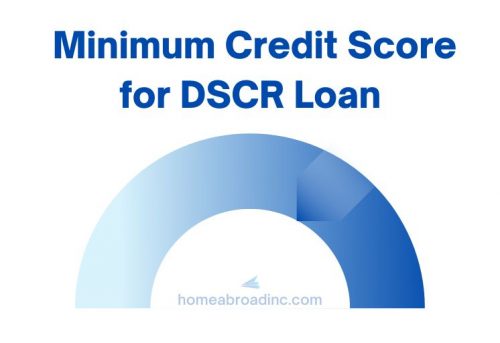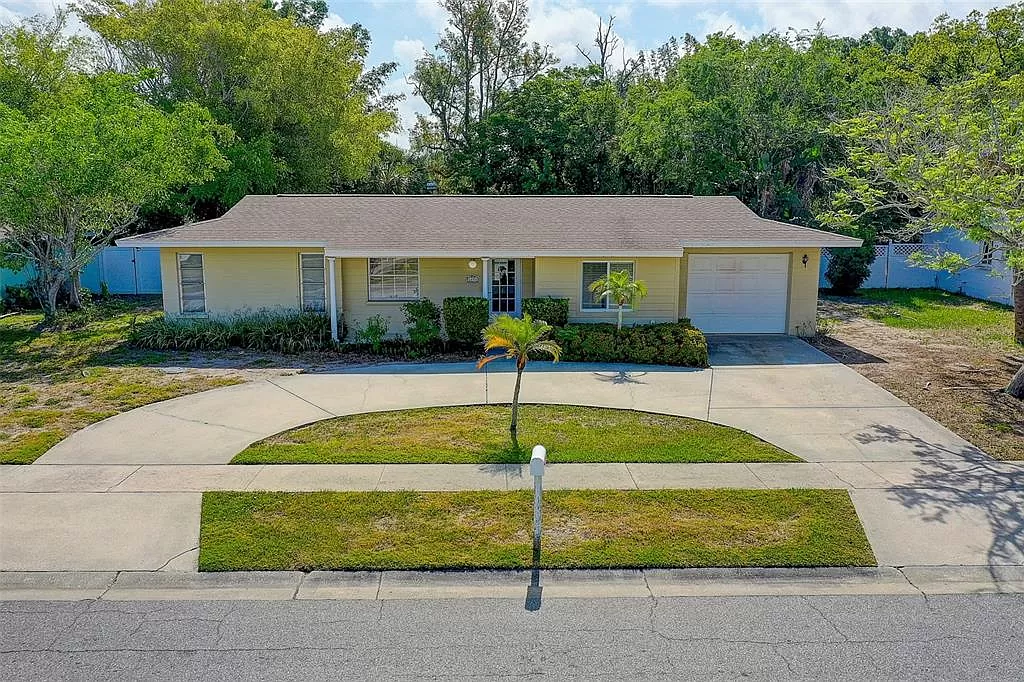Welcome to our blog post on the credit score requirements for a DSCR loan. DSCR ratio (Debt Service Coverage Ratio) loans are popular for entrepreneurs, seasoned real estate investors, and small business owners who need financing for investment properties to expand or start their businesses.
However, before applying for a DSCR loan, you must know what credit score you need to be eligible for this type of lending.
So, let’s learn more about DSCR loans and how your credit score can impact your eligibility.
Table of Contents
DSCR Loan Credit Score
Your credit score is a crucial factor lender use to decide whether you qualify for a loan. A DSCR loan lender will review your proof of the potential rental property, rental income, and credit score to assess your ability to repay the debt.
The higher your credit score for the loan, the more likely you will get approval for a DSCR loan. Generally, lenders prefer borrowers to have a credit score of at least 620 or higher.
If you want to gain a deep understanding of DSCR loans, our guide is here to help.

Credit Score Required for DSCR Loans
The minimal credit score required for a DSCR loan depends on the lender. Generally, borrowers must have a good credit history and enough future rental income to help cover loan payments, monthly mortgage payments, and other financial obligations.
For most DSCR lenders, that means having a credit score of 620 or better. However, other lenders may require a higher score, so it’s essential to research the lender’s requirements before applying.
Some lenders will approve DSCR loans even if you have a credit score lower than 620, but there will be a higher down payment and interest rate.
What if you don’t have the required credit score for a DSCR loan?
Options are still available if you need to get the minimum credit score required for a DSCR loan. For example, most lenders may allow borrowers to use gross rental income and a higher down payment to qualify for a loan.
Additionally, it’s important to remember that some lenders may have different requirements for approving a loan, depending on the amount requested.
For example, if you’re seeking a large DSCR loan, such as a maximum loan amount of $1 million or more, you may need to meet higher credit score requirements than smaller loans.
Impact of a Bad Credit Score on DSCR Loans
A borrower with a lower credit score may have difficulty obtaining a DSCR loan. Lenders may view the borrower’s ability as more likely to default on their loan payments and, therefore, less attractive for financing.
Lower credit scores also mean they have to pay higher interest rates and larger down payments, making it more challenging for a real estate investor to qualify for DSCR loans.
This post is a must-read to know how DSCR loan down payment works and how it relates to the debt service coverage ratio.
Approval of a DSCR Loan May Depend on Why Your Credit Score is Low
Many borrowers view credit scores as all-or-nothing—whether the credit score is good enough or not. DSCR loan lenders take a different approach and analyze beyond the raw numbers to understand why your score might be low or high.
They look into what components make up your credit score to gain insight into its current standing. For example, if you have delinquent payments or maxed-out credit cards, the lender will determine what caused those issues before deciding.
Having an open dialogue with the lender and being honest about your current financial situation can go a long way toward getting approved for a loan.
Once you’ve gathered this information, contact a mortgage broker or lender through HomeAbroad to discuss your eligibility requirements, including any additional information they may need to approve your loan.
Factors That Impact Your Credit Score
The most vital factor affecting your credit score is payment history. In addition, other elements, such as the amount of debt you owe, the length of your credit history, and the types of accounts you have, can also affect your score.
Let us see several crucial factors impact the overall loan credit score:
- Credit mix: A diverse mix of credit accounts, such as credit cards, car loans, and home loans, can lead to higher scores.
- New credit: Opening too many recent credit accounts together can hurt your credit score, so it is better to space out your credit applications.
- Negative items: Late or missed payments, delinquencies, and bankruptcies can significantly lower your credit score.
- Length of Credit History: Your credit history is another important factor. Lenders look at the time each account opened and your overall credit history.
- Credit utilization: Credit utilization is the ratio between your total credit used and the amount of credit that you have available. A higher usage rate can detrimentally affect your score, so keeping this in check is essential.
- Credit inquiries: Multiple credit inquiries can also harm your credit score, especially in a short period.
- Public records: Bankruptcies, foreclosures, and other public records can also affect your credit score.
Understanding the factors that impact the credit score can help borrowers work towards a more substantial credit score and increase their chances of being approved for DSCR or other loans.
How to Improve Your Credit Score?
Improving your credit score can be a lengthy process, but it starts with understanding the components of the score and what lenders are looking for.
Here are a few ways to enhance your credit score:
1. Reduce Your Debt Level
Reducing your debt level is critical to improving your credit score. Paying off existing debt or consolidating loans can decrease monthly payments and improve credit scores.
2. Increase Your Monthly Income
Increase your monthly income by working overtime, taking on additional freelance work, or finding another source of revenue. A higher income can reduce the debt-to-income ratio and improve your credit score.
3. Make Regular Payments on Time
Making regular, timely payments is essential for building and maintaining good credit. Late payments are informed to the credit bureaus and can harm your credit score.
You can demonstrate financial responsibility and improve your credit score by making timely mortgage payments.
4. Lower Interest Rates When Possible
Lowering your interest rate can reduce the monthly payment, more cash flow, and improve your overall financial position. Not only will this strengthen your positive cash flow, but it will also make it easier to pay off debt and increase your credit score.
You can negotiate with creditors to lower interest rates or shop for a more competitive lender.
Keep yourself updated on the latest DSCR loan interest rates through our blog.
5. Consider Down Payment Options for Real Estate Investors
A down payment can help real estate investors improve their credit scores. In addition, a larger down payment reduces the money borrowed and can lead to a more robust loan application.
Additionally, cash on hand for a down payment indicates to lenders that the borrower has access to financial resources. Therefore, it can be beneficial in securing financing and improving the loan credit score.
How to get Approved for a DSCR Loan with a Lower Credit Score?
If you have a lower credit score, getting approved for a DSCR (Debt Service Coverage Ratio) loan can seem daunting. However, you can take steps to increase your chances of approval.
Below are some tips on how to get approved for a DSCR loan with a lower credit score:
1. Find a co-signer
A co-signer with good credit can raise your chances of getting approved for a DSCR loan. It is because a co-signer agrees to take on debt service payments and the responsibility of paying back the loan if you cannot.
2. Increase your down payment
Increasing your down payment can help offset a lower credit score. The more money you can put in a down payment, the less risk you pose to the lender.
3. Show a solid rental income history
Lenders may consider your investment property rental income history as part of the loan application if you’re a seasoned real estate investor.
Showing evidence of consistent and reliable monthly rental income can be beneficial in securing financing for rental properties despite having a lower credit score.
In addition, you should provide documentation to prove the gross monthly rent amount and the rental income generated after the operating expenses.
4. Consider a smaller loan
If you have difficulty getting approved for a larger loan, consider applying for a smaller one. It will reduce the risk for the lender and may increase your chances of approval.
To find the best DSCR loan lender for your needs and lifestyle, read helpful guides on where to look.
5. Cash Reserve
Sufficient cash reserves can also improve your chances of getting approved for a DSCR loan. Having enough cash to cover the minimum credit score requirements demonstrates financial responsibility and reinforces your ability to repay the loan.
6. Work on improving your credit score
While improving your credit score takes time, it can ultimately increase your chances of getting approved for a loan.
Some steps include paying bills on time, paying down loans, and disputing any errors on your credit report.
7. DSCR Ratio
In addition to your credit score, creditors will consider your DSCR ratio when evaluating an application for a loan. Calculate this ratio by dividing the net operating income by monthly loan payments.
A higher ratio indicates you can better manage monthly debt payments and debt obligations and help secure loan approval.
Debt Service Coverage Ratio (DSCR) Calculator
Calculate DSCR Now!Know the viability of your investment property with our DSCR calculator. Ensure you have the financial capacity to meet your debt obligations.
Following these tips can raise your chances of getting approved for a DSCR loan with a lower credit score. Additionally, improving your credit score is vital for long-term financial success.
Want to apply for a DSCR loan? HomeAbroad is a trusted DSCR loan lender, and we offer the most competitive loan terms our customers. Get a rate quote today.

Pre-qualify for a DSCR Loan in a Few Clicks.
No Paystubs, W2s, or Tax Returns Required.
Conclusion
A higher credit score can benefit individuals and businesses seeking financing. In addition, it indicates better financial responsibility and management of debt service obligations.
With a higher credit score, borrowers may access more favorable terms, lower interest rates, or more significant loan amounts for DSCR loans, investor cash flow mortgages, and many more.
By understanding the factors that affect your DSCR and taking proactive steps to improve it, you can strengthen your loan application and increase your chances of securing financing.
Frequently Asked Questions
Q1. What credit score do I need for a DSCR loan?
A. Lenders generally prefer a credit score of 620 or higher for an individual to qualify for a DSCR loan.
However, some lenders may accept a lower credit score if there is sufficient evidence of financial responsibility and sound debt management habits.
Q. Do DSCR loans require a credit check?
A. DSCR loan lenders require a credit check before providing a DSCR loan. The lender will use the credit information to assess an individual’s financial security and ability to repay the loan.
Q. How are borrowers qualified for a DSCR loan?
A. Generally, borrowers must demonstrate sufficient rental income and a good credit score to qualify for a DSCR loan.
Q. Are DSCR loans hard to get?
A. DSCR loans have more flexible requirements than conventional mortgages. If you have a positive cash flow generating property and credit score of 620 and more, then you can easily qualify for the DSCR loan.
Q. Can I get a DSCR loan with Bad credit?
A. Some lenders may accept DSCR loan applications from individuals with bad credit if there is sufficient evidence of sound debt management habits and financial responsibility.
Q. How do you calculate DSCR on loans?
A. The DSCR on loan is calculated by dividing the total debt service payments (including rent, mortgage payments, and other expenses) by the individual’s gross rental income or personal income.
A higher figure indicates better financial security and a more remarkable ability to handle debt obligations.
Q What is a debt consolidation loan 620 credit score?
A. A debt consolidation loan 620 credit score is the minimum score required for an individual to qualify for a loan designed to consolidate outstanding debts into one payment with a lower interest rate and more manageable repayment structure.




















